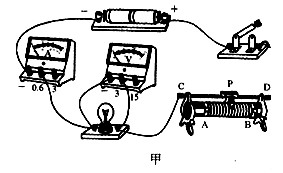Kids have their own ideas about money---some are sensible and others are not so wise. Twelve-year-old Amanda thinks it’s to save and not blow your money right away “ so you can other things”. When it comes to credit cards, eight-year-old Jeremie says when the monthly comes in “ you sign it and then you give it back” ---leaving out the part about actually it. These kids are far away from the working world, but the ideas they’re forming about could affect how much they save, how they use credit cards and how much debt they finally take on in later life. High school business teacher Jeff Balch said his students had knowledge about money other than spending. “ They don’t know most things because talks to them about them---as in their parents,” said Balch, “The discussions tend to be in terms of kids too much money, but no one tells them why, where their money goes. Mitch Murphy said students’ message to the task force was to “ make it ”. “ It may be difficult to have a 14-or 15-year-old student get too about retirement planning, ” Murphy said, “ But if you want to talk about a cellphone contract or a debt card,they will be engaged in.” Murphy said learning financial literacy (能力) , well getting into the work force, should stay with Canadians for life and the country as a result. Sandra Martin said children can start learning about money when they learn to . “ Sit down with the flyers and look at how much things cost,” Martin said. Babysitting and birthday money could be and there would be a(n) as to how much could be debited(借) every month, she said. “ The reality is that we’re not spending with cash anymore. If you’re always in of your child’s money, then they’re never going to learn what it means to save for something that’s .” Balch said he tries to make his students realize the differences between needs, wants and priorities(优先权). If they haven’t learned self-control and if they haven’t learned how to money, they can easily spiral(螺旋上升) out of control.
|
小题1:A
小题2:C
小题3:B
小题4:A
小题5:B
小题6:D
小题7:C
小题8:D
小题9:A
小题10:B
小题11:C
小题12:B
小题13:A
小题14:A
小题15:C
小题16:D
小题17:C
小题18:B
小题19:A
小题20:D
题目分析:文章阐述现在的孩子对理财的了解不是很多,作者认为孩子很早就要学会理财,学会存款,为以后的生活做准备,这会整个国家都是有好处的。
小题1:考查形容词:A. good好的,B. difficult 困难的,C. easy容易的,D. hard困难的,从后面的句子:“ so you can 17 other things”.可知Amanda认为存钱是好的,选A
小题2:考查动词:A. sell卖,B. exchange交换,C. buy买,D. involve涉及,如果存钱,可以买更多的东西,选C
小题3:考查名词:A. material材料,B. bill账单,C. catalogue目录,D. figure人物,数字,从后面的“ you sign it and then you give it back”可知是每个月的账单到了,选B
小题4:考查动词:A. paying 付钱,B. replacing代替,C. recycling回收,D. adopting采用,收养,“ you sign it and then you give it back”实际上是省略了实际付钱的部分,选A
小题5:考查副词:A. already已经,B. still仍然,C. even甚至,D. almost几乎,这些孩子离工作的领域还很远,选B
小题6:考查名词:A. belief信念,B. part 部分,C. discipline原则,D. money钱,他们对于钱形成的想法对他们有很大的影响,选D
小题7:考查形容词:A. much很多,B. more更多,C. little很少,D. many很多,从后面的句子:“ They don’t know most things 高中商业老师Jeff Balch认为他deep学生对钱了解很少,选C
小题8:考查代词:A. everybody每个人,B. somebody一些人,C. anybody任何人,D. nobody没有人,他们不了解这些事情,因为没有人和他们说,选D
小题9:考查动词:A. spending花费(主语是人)B. costing花费(主语是物),C. taking 花费(主语是it) D. sparing匀出,腾出,讨论往往是孩子花费太多的钱,选A
小题10:考查形容词:A. amazing令人惊叹的,B. real真的,C. active活泼的,D. legal合法的,从后面的句子:“ It may be difficult to have a 14-or 15-year-old student get too 26 about retirement planning, ”可知要让这个任务变得真实,选B
小题11:考查形容词:A. disappointed 失望,B. skeptical 怀疑,C. enthusiastic热情的,D. fortunate幸运的,14,15岁的孩子对退休的计划不会太有热情,选C
小题12:考查副词:A. correctly正确地,B. early早,C. late吃,D. patiently耐心地 ,从后面的句子:well 28 getting into the work force,可知要早早的学习经济能力,选B
小题13:考查连词:A. before在,…前面,B. after在,…后面,C. when 当,…时候,D. while当….时候,这里指在上班之前就学习经济方面的能力,选A
小题14:考查动词:A. benefit使…受益,B. bother麻烦,费事,C. contact联系,D. educate教育,早早的学习经济能力是加拿大人终身的事情,因此使整个国家受益,选A
小题15:考查动词:A. cook烹饪,B. trade交易,C. count数,D. paint绘画,孩子们学会数数的时候,就要了解钱的事情,选C
小题16:考查动词:A. stood站立,B. banned禁止,C. displayed 展示,D. deposited存款,从后面的there would be a(n) 32 as to how much could be debited(借) every month,可知照顾小孩的钱和生日的钱要存起来,选D
小题17:考查名词:A. attitude态度,B. conclusion结论,C. limit限制,D. data数据,每个月借出的钱要有限制,选C
小题18:考查动词:A. search搜寻,B. control控制,C. need需要,D. place地方,in control of控制,选B
小题19:考查形容词:A. important重要,B. formal正式的,C. scientific科学的,D. independent独立的,如果你总是控制孩子的钱,他们永远不会知道存钱的重要性,选A
小题20:考查动词:A. borrow借出,B. lend借进,C. increase增加,D. handle处理,应付,如果孩子没有学会怎么处理钱,慢慢地就会失去控制,选D



